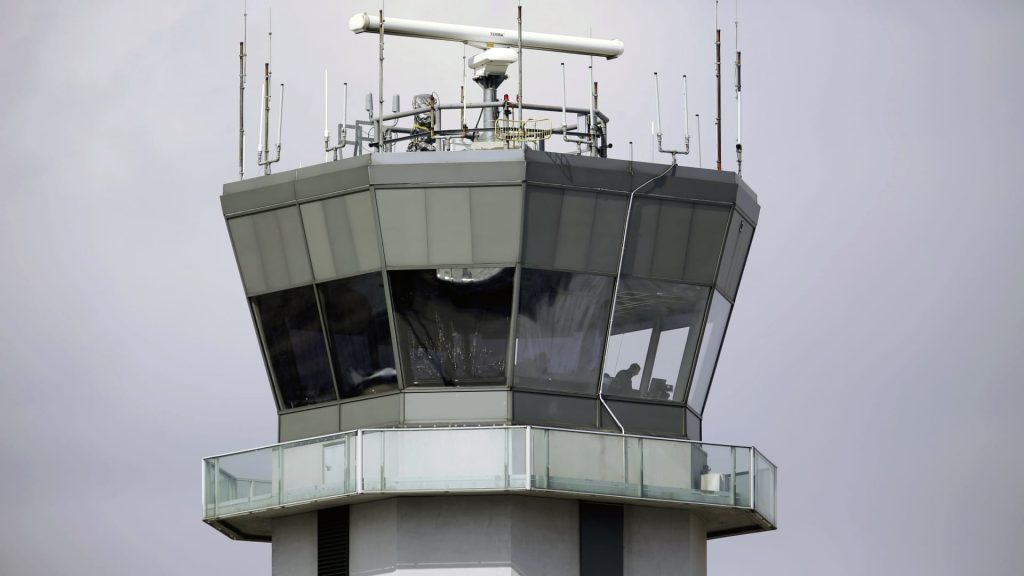In recent testimony before a House committee, aviation industry representatives have highlighted the urgent need for advancements in air traffic control technology and increased hiring of air traffic controllers. The call for action comes in the wake of a tragic collision involving an American Airlines regional jet and an Army Black Hawk helicopter near Ronald Reagan Washington National Airport, which claimed the lives of all 67 individuals aboard. As air travel demand reaches unprecedented levels, the aviation community aims to address the staffing shortfalls that have persisted since 2012.
| Article Subheadings |
|---|
| 1) The Call for Increased Air Traffic Control Staffing |
| 2) Recent Airline Tragedy Sparks Urgent Discussion |
| 3) Government Responses and Staffing Strategies |
| 4) Concerns Over Cost-Cutting Measures |
| 5) Recommendations for Future Procurement Practices |
The Call for Increased Air Traffic Control Staffing
The aviation industry is experiencing a significant surge in traffic, yet air traffic controller staffing numbers have decreased by approximately 9% since 2012. As of now, the demand for air travel has reached new heights, highlighting the necessity for more air traffic controllers. Nick Daniels, the president of the National Air Traffic Controllers Association, presented this information during the House committee hearing. He emphasized the detrimental effects of inadequate staffing on the safety and efficiency of the air traffic control system. Without additional controllers, maintaining safety standards while accommodating rising air traffic becomes increasingly challenging.
Recent Airline Tragedy Sparks Urgent Discussion
An accident near Ronald Reagan Washington National Airport last month involving an American Airlines regional jet and an Army Black Hawk helicopter has underscored the critical need for attention to air traffic control systems. The tragic collision, which resulted in the loss of 67 lives, is regarded as the deadliest airline disaster in the United States since 2001. Following the incident, both lawmakers and aviation representatives expressed heightened urgency for the adoption of newer air traffic control technologies and better staffing practices aimed at preventing similar catastrophes in the future.
Government Responses and Staffing Strategies
In response to the staffing concerns, Transportation Secretary Sean Duffy noted that the current administration is making strides to bolster air traffic controller hiring. Legal measures include raising starting salaries by 30% for individuals who complete the Federal Aviation Administration’s training academy. Such incentives are critical as they aim to attract more candidates to what is undeniably a demanding and high-stakes profession. While this strategy makes headway in addressing the shortfall, it remains to be seen if it will be sufficient to meet the growing demands of air travel in the coming years.
Concerns Over Cost-Cutting Measures
The aviation sector faces scrutiny as the government implements cost-cutting measures, a move reportedly directed by millionaire advisor Elon Musk. These measures have included the laying off of approximately 300 Federal Aviation Administration (FAA) employees, excluding air traffic controllers. This has raised alarms among industry stakeholders, as they fear that such reductions could inhibit the FAA’s capacity to modernize and enhance the aviation system effectively. David Spero, president of the Professional Aviation Safety Specialists, expressed the view that indiscriminate cuts to support personnel undermine the FAA’s safety objectives, ultimately jeopardizing the security of air travel across the country.
Recommendations for Future Procurement Practices
Amidst the ongoing discussions regarding staffing and technology needs, industry leaders have urged reliance on procurement specialists from the private sector, including experts within Musk’s newly proposed Department of Government Efficiency. Nick Calio, head of Airlines for America, advocates for revising FAA procurement standards, citing these changes as necessary to streamline the acquisition of commercial products and services. By facilitating procurement processes, aviation stakeholders argue that the FAA will be better equipped to respond to contemporary air traffic demands, thus elevating safety and operational efficiency.
| No. | Key Points |
|---|---|
| 1 | The aviation industry is facing critical staffing shortages of air traffic controllers. |
| 2 | The collision near Washington National Airport has raised alarms regarding aviation safety. |
| 3 | Transportation Secretary Duffy has announced an increase in starting salaries for air traffic controllers. |
| 4 | Concerns exist regarding the impact of budget cuts on FAA operations and safety standards. |
| 5 | Experts recommend reforming FAA procurement practices to aid staffing and technology improvements. |
Summary
The aviation industry’s current challenges reflect a critical need for enhancements in air traffic control staffing and technology. The tragic events surrounding the recent airline accident have intensified calls for change, compelling lawmakers and stakeholders to consider both immediate and long-term solutions. As the industry braces for sustained growth, a collaborative effort among government agencies, aviation personnel, and private sector experts will be essential to ensuring the safety, efficiency, and effectiveness of air travel in the years ahead.
Frequently Asked Questions
Question: What are the main issues raised by the aviation industry regarding air traffic control?
The primary concerns involve staffing shortages of air traffic controllers and the need for updated technology to handle the increasing demand for air travel. Industry leaders emphasize the importance of recruiting more personnel to ensure safety and efficiency.
Question: How has the recent airline accident impacted discussions around air traffic control?
The deadly collision near Washington National Airport has heightened awareness and urgency regarding the air traffic control system. It has prompted industry representatives and lawmakers to advocate for better staffing and modernization efforts to prevent similar tragedies in the future.
Question: What measures is the government taking to address air traffic controller staffing levels?
The government is increasing starting salaries for newly hired air traffic controllers by 30%. This initiative is aimed at attracting more candidates to the profession, addressing the ongoing staffing shortages within the FAA.
